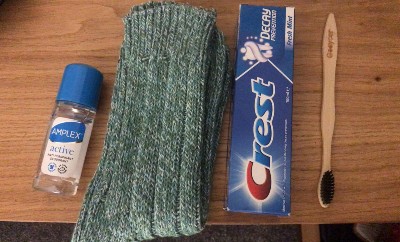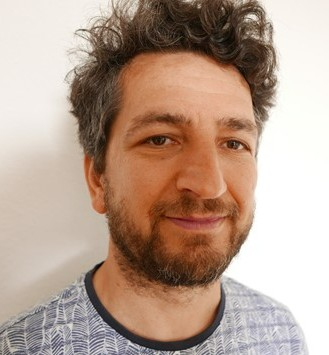Study suggests relocations took place with little consideration of people's needs and adversely affected their health and wellbeing
Asylum seekers who were moved to temporary accommodation during the Covid-19 pandemic have faced unsafe conditions, mobility restrictions and a lack of communication from service providers, according to a new study.
Edinburgh Napier researchers said the asylum seekers’ accounts – in which they likened their hotel-type accommodation to detention centres - “pointed to a provision that was inattentive towards their needs, vulnerability and wellbeing.”

The study, which focuses on accommodation in Glasgow, is particularly critical of a “mothers and baby” unit in the south of the city, which was opened last October. Mothers, who were moved there by Home Office accommodation contractor Mears Group who run the facilities, criticised the cramped and noisy living conditions, unsuitable furniture and inadequate washing facilities.
The report authors call for an independent assessment of the facility to be carried out as a matter of urgency, and say no more families should be moved there until this has taken place.
Other recommendations in the interim report include calls for risk assessments for individuals in advance of any relocation, the minimising of stays in hotel-type accommodation, a review of limits on travel luggage, and the lifting of restrictions requiring residents to stay ‘on-site overnight’.
Edinburgh Napier researchers carried out the study, funded by the Economic and Social Research Council, as part of UK Research and Innovation’s response to Covid-19. They worked with migrant-led grassroots organisation Migrants Organising for Rights and Empowerment (MORE) to explore the impact of the pandemic on those placed in temporary accommodation in Glasgow.

Around 350 asylum seekers were moved from their settled flats into various hotels in the city centre following the outbreak of Covid-19 in March last year, which Mears Group claimed was an attempt to curb the spread of the virus. Researchers spoke to more than 50 asylum seekers and followed closely the lives of 14 participants of varied ages and backgrounds from December 2020 to June 2021, during the ‘second wave’ of the virus in the UK, through weekly online meetings.
Accommodation for asylum seekers during the pandemic has long been a controversial topic. A mass outbreak of Covid at the repurposed Napier military barracks in Kent last winter and a mass stabbing at the Park Inn Hotel in Glasgow the previous June sparked debate and criticism of the government's handling of asylum housing from parliamentary select committees.
The interim findings of the new Edinburgh Napier study suggest relocating asylum seekers to hotel-type accommodation had a negative impact on their health and wellbeing, and that they found social distancing almost impossible in their new environment.
Individuals living in hotels also faced a number of restrictions. They were unable to cook their own food or have visitors, had their weekly allowance withdrawn, and were told they could not spend nights away from the accommodation. The food served was said to be of poor quality, and it did not reflect their religious or cultural backgrounds.
The Glasgow-based mother and baby unit, the only such facility in the whole of Scotland, was reportedly noisy - with doors frequently banging and staff knocking, and had small beds, insufficient room ventilation and furniture which was unsuitable for breastfeeding. One mum told of her humiliation when the driver taking her to the unit told her she had too many belongings for a “destitute” asylum seeker.
The report said relocations to temporary accommodation took place with little consideration of people’s needs and with no consultation with asylum seekers themselves. There were cases of people being given less than 15 minutes to get ready for their move, and of individuals being threatened with deportation if they resisted.

Dr Taulant Guma, Principal Investigator and lecturer in Edinburgh Napier’s School of Applied Sciences, said: “While issues around asylum accommodation have received a significant amount of media and public attention since the start of the Covid-19 outbreak, little attention has been paid to the experiences and perspectives of asylum seekers themselves, who are directly and mostly affected by these housing arrangements.
“As a collaboration with a grassroots organisation, our study offers a unique and in-depth insight and understanding into the day-to-day realities of asylum seekers’ housing experiences during the pandemic.
“In the context of the current Afghan crisis and discourses of ‘warm welcome’, our findings offer a timely reminder of the cold realities that may await Afghan asylum seekers and refugees once they are relocated to their accommodation across the country.”
Robert Makutsa, Community Researcher with MORE, said: “The asylum accommodation system is broken because the level of duty of care that is required does not need to be met. Think about it; what legal action can an asylum seeker raise against Mears or the Home Office in their failure to adhere to the accommodation provision? None.
“Their lives are defined and controlled by their agents and often it is us, migrant led organisations and grassroots groups, who put pressure on Mears when asylum seekers make complaints.”